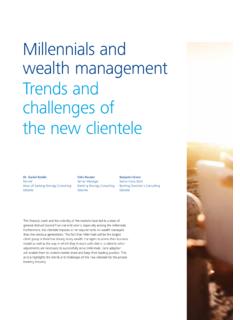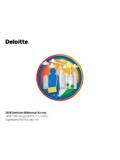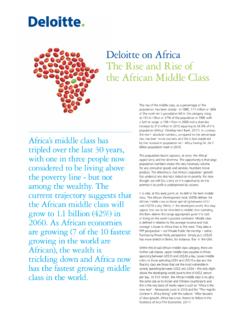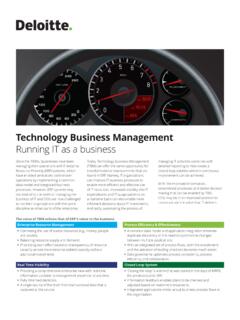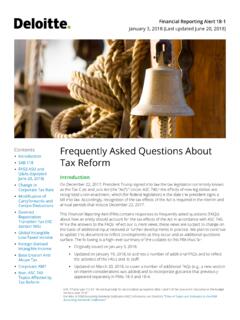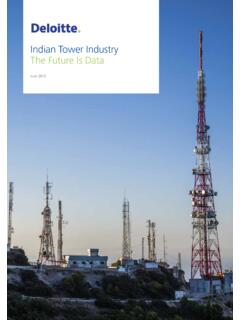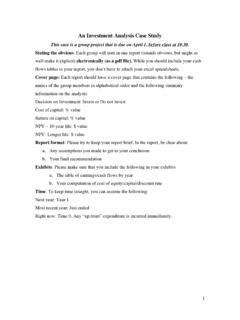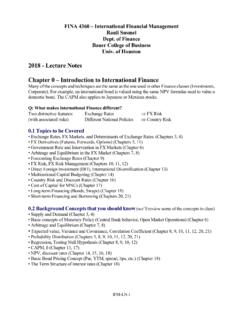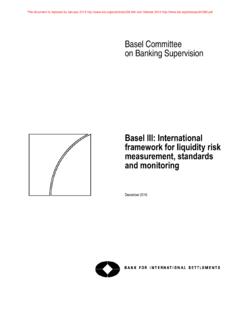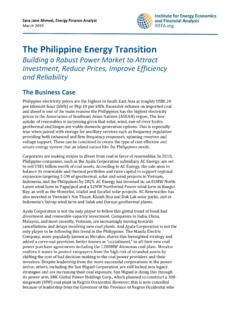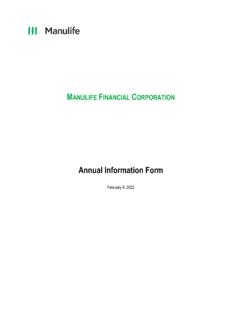Transcription of Singapore Highlights 2022
1 Page 1 of 11 International Tax Singapore Highlights 2022 Updated January 2022 Recent developments For the latest tax developments relating to Singapore , see Deloitte Investment basics Currency: Singapore Dollar (SGD) Foreign exchange control: There are no significant restrictions on foreign exchange transactions and capital movements. Funds may flow freely into and out of Singapore . The government imposes certain restrictions on the lending of SGD to nonresident financial institutions to limit speculation in the SGD currency market, but these restrictions do not apply to the lending of SGD to individuals and nonfinancial institutions, including corporate treasury centers.
2 Accounting principles/financial statements: Singapore Financial Reporting Standards apply. Financial statements must be prepared annually. Principal business entities: These are the public and private limited liability company, partnership (includes limited partnership and limited liability partnership), sole proprietorship, variable capital company (a form of legal entity for investment funds), and branch of a foreign corporation. Corporate taxation Rates 17% Branch tax rate 17% capital gains tax rate 0% Residence: A company is resident in Singapore for income tax purposes if the management and control of its business is exercised in Singapore .
3 The place where management and control is exercised generally is the place where the directors meetings are held. Where a company that normally holds its directors meetings in Singapore is unable to do so as a consequence of travel restrictions imposed in response to the COVID-19 pandemic, the Inland Revenue Authority of Singapore (IRAS) may consider the company as a Singapore tax resident for year of assessment (YA) 2021 and/or YA 2022, provided it meets certain conditions. Conversely, where a company is not a tax resident of Singapore for YA 2020 and/or YA 2021, the IRAS will continue to consider the company as nonresident for YA 2021 and/or YA 2022 even where the Corporate income tax rateSingapore Highlights 2022 Page 2 of 11 company has to hold directors meetings in Singapore due to COVID-19 travel restrictions, provided the company meets certain conditions.
4 Basis: Singapore imposes tax on a territorial basis. Tax is imposed on all income accruing in or derived from Singapore and all foreign income remitted or deemed remitted to Singapore in the preceding year, subject to certain exceptions. Resident and nonresident companies generally are taxed in the same manner, but resident companies may enjoy various tax benefits, such as tax exemption for certain foreign-source income. Branches are taxed in the same way as subsidiaries. Taxable income: Resident and nonresident companies are subject to tax on income accruing in or derived from Singapore and foreign income remitted or deemed remitted to Singapore , including: gains or profits from a trade or business; dividends, interest, or discounts; charges or annuities; rents, royalties, premiums, and other profits arising from property; and gains or profits of an income nature not falling within the above categories.
5 Foreign income remittances in the form of dividends, branch profits, and services income derived by resident companies are exempt from tax, provided the income is received from a foreign jurisdiction with a headline tax rate of at least 15% in the year the income is received or deemed received in Singapore , and income tax has been paid on the income in the foreign jurisdiction. Foreign income that has been exempt from tax in the foreign jurisdiction as a direct result of a tax incentive granted for substantive business operations carried out in that jurisdiction will be deemed to have met this subject to tax test.
6 Expenses of a revenue nature that are incurred wholly and exclusively to produce income may be deducted in computing taxable income. Other deductible costs include capital allowances and tax losses carried forward from prior years. Rate: The standard corporate tax rate is 17%. A partial tax exemption applies in accordance with which 75% of the first SGD 10,000 of normal chargeable income and 50% of the next SGD 190,000 of normal chargeable income are exempt from tax. In addition, for a qualifying new private company, 75% of the first SGD 100,000 of normal chargeable income and 50% of the next SGD 100,000 of normal chargeable income may be exempt from tax for its first three consecutive YAs, subject to certain conditions.
7 Surtax: There is no surtax. Alternative minimum tax: There is no alternative minimum tax. Taxation of dividends: Singapore operates a one-tier corporate tax system, under which corporate tax paid on a company s profits is final. Dividends paid by Singapore resident companies are tax exempt in the hands of the recipient. Foreign-source dividends are taxable if received or deemed to be received in Singapore , unless certain conditions are satisfied. capital gains: Singapore does not tax capital gains. Losses: Losses may be carried forward indefinitely (except unutilized donations, which may be carried forward for five years), subject to compliance with the substantial shareholders test.
8 Unutilized capital allowances carried forward are subject to both the substantial shareholders test and the business continuity test. Losses and unutilized capital allowances (collectively qualifying deductions ) may be carried back for one year, subject to a cap of SGD 100,000 and compliance with the substantial shareholders test (compliance with the business continuity test also is required for the carryback of current year unutilized capital allowances). To support businesses affected by the COVID-19 pandemic, the carryback relief was enhanced for YAs 2020 and 2021 to enable businesses to carry back qualifying deductions for YAs Singapore Highlights 2022 Page 3 of 11 2020 and 2021 to the three immediately preceding YAs ( , YAs 2017, 2018, and 2019, and YAs 2018, 2019, and 2020, respectively).
9 The cap of SGD 100,000 and qualifying conditions remain unchanged. Foreign tax relief: Some types of foreign-source income are exempt from Singapore tax (subject to certain conditions). Singapore grants resident companies a credit for foreign tax paid on income derived from treaty and nontreaty countries that is received and assessable to tax in Singapore . A tax credit also is available for tax paid on income considered to be Singapore -source but allowed to be taxed in the foreign jurisdiction under the specific provisions of a relevant tax treaty.
10 The credit is limited to the Singapore tax payable on that income, or the foreign tax paid, whichever is lower. The foreign tax credit amount may be calculated on a pooled basis, subject to certain conditions. Participation exemption: Dividends paid by Singapore resident companies are tax exempt in the hands of the recipient. As noted under Taxation of dividends, above, foreign-source dividends are taxable if received or deemed to be received in Singapore , unless certain conditions are satisfied. Gains from the disposal of ordinary shares in another company on or before 31 December 2027 are exempt from tax, provided the shares have been legally and beneficially held for a continuous period of at least 24 months immediately before the disposal and a 20% minimum ordinary shareholding requirement is met, subject to certain exceptions.
